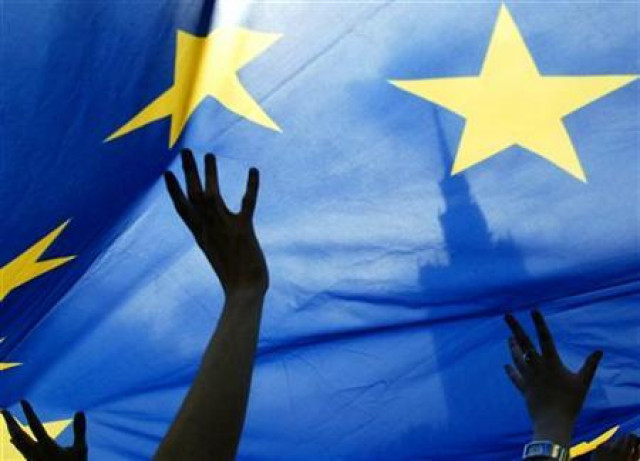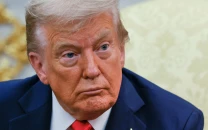Bulgaria, Russia's best friend in the EU
Their ties date back to 1878 when Tsar Alexander II put an end to five centuries of Ottoman domination of Bulgaria

Their ties date back to 1878 when Tsar Alexander II put an end to five centuries of Ottoman domination of Bulgaria. PHOTO: FILE
In November, Bulgarians elected Rumen Radev, an air force commander backed by the Socialists (BSP) and seen as sympathetic to Russia, as president.
This prompted the centre-right government to resign, triggering Bulgaria's third general election since 2013.
Euro lawmakers press European Union to impose visas on US citizens
As Slavic countries, Russia and Bulgaria have deep historical and cultural ties, and Sofia has long walked a tightrope between Moscow and the West.
Their close relations date back to 1878 when Tsar Alexander II put an end to five centuries of Ottoman domination of Bulgaria, an event commemorated on March 3 every year.
In the communist era, Bulgaria was the Soviet Union's most trusted satellite.
Although Bulgaria is a NATO member, a recent survey showed 42% of Bulgarians counted on Russia for their security compared with just 17% relying on the United States.
Despite joining the European Union a decade ago, Bulgaria's economy is yoked to Russia.
Almost all of Bulgaria's gas imports come from Russia. The country's only nuclear power plant is Russian-made and its sole oil refinery belongs to Russia's Lukoil.
Last year, 600,000 Russian tourists visited Bulgaria, mostly to enjoy its Black Sea beaches, and 320,000 Russians own property in the country.
In headscarf ruling, EU court allows religious symbol bans
Plans for a second Russia-built nuclear plant and for the South Stream gas pipeline, which would have gone through Bulgaria, were scrapped under US and EU pressure.
But both candidates from the two main parties, former premier Boyko Borisov from the centre-right GERB party and Kornelia Ninova from the Socialists, want to revive these projects.
According to Russia's ambassador, President Vladimir Putin may visit in 2018 for the 140th anniversary of 1878 - provided there are some juicy new contracts to sign.
A recent newspaper cartoon depicted the leftwing Ninova, who wants EU sanctions on Russia lifted, riding a Trojan Horse. Hiding inside was Putin.
The prospect of Moscow increasing its influence in a member of the EU alarms many in the West, particularly with Russia accused of meddling elsewhere in the Balkans.
But at the same time, Bulgarians like the European Union. One survey found 49% have a positive attitude towards the bloc, well above the European average, with 34% eurosceptic.
"No one thinks Bulgaria is about to leave the EU or NATO. But it risks becoming a representative for outside views and to become a Trojan Horse within these organisations," said political scientist Antony Galabov.
Britain 'will allow EU citizens to stay' after Brexit
And it is not as though GERB is hostile to Moscow either. Party leader Borisov in 2010 gave Putin a puppy later named Buffy.
"I like Russia a lot, but it's from the EU that we get billions of euros in subsidies," Borisov said.
Meanwhile, another country has entered the election campaign this time: Turkey.
Bulgaria is home to a 700,000-strong ethnic Turkish minority, a legacy of the Ottoman Empire.
Turkey, its neighbour, is home to more than 200,000 ethnic Turks with Bulgarian passports, most of whom left Bulgaria during the communist era.
Sofia has accused Ankara in recent weeks of meddling in its election. Sofia summoned Turkey's ambassador and recalled its own envoy from Turkey for consultations.
This came after Turkey's ambassador and others openly backed a new splinter party representing Bulgaria's Turkish minority which strongly backs Turkish President Recep Tayyip Erdogan.
The main Turkish party, Movement for Rights and Freedoms (MRF), which is the third-biggest in parliament, has become ever more critical of Erdogan.



















COMMENTS
Comments are moderated and generally will be posted if they are on-topic and not abusive.
For more information, please see our Comments FAQ